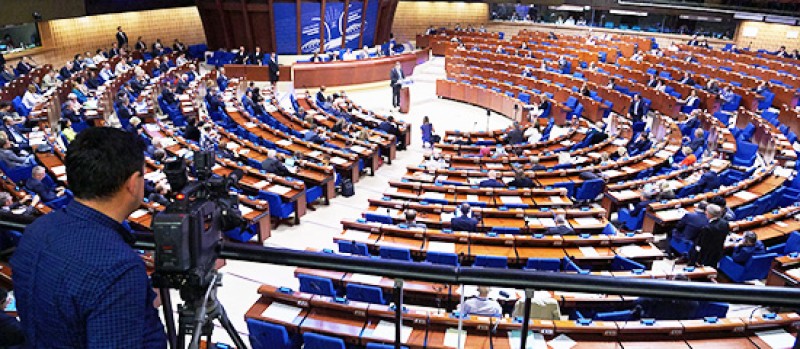There have been several reports on Azerbaijan’s alleged efforts to boost the country’s image among PACE members. The most recent was conducted by OCCRP and partners and exposed an alleged money-laundering scheme involving US$2.9 billion used to pay off European politicians and buy luxury goods.
In response, PACE organized an investigation and wrote a report on allegations of corruption within PACE. It was published on April 15.
The report compiles the evidence found and explains the relationship between the Azerbaijani government and PACE going back to 2001, when Azerbaijan joined the Council of Europe. It spells out the Assembly’s ethical and legal standards, assesses the investigative findings and suggests next steps.
The PACE report notes that one of its responsibilities is to investigate member countries’ human rights records with an eye towards encouraging strong national laws and sanctioning states who fall short. It points specifically to human rights concerns about Azerbaijan’s handling of political prisoners.
The European Stability Initiative (ESI) think tank raised concerns about Azerbaijan’s role in the Council of Europe in a 2012 report on “caviar diplomacy,” or Azerbaijan’s attempts to silence PACE criticism of the country in exchange for gifts and money.
A second ESI report published in 2013 connected this practice to the issue of political prisoners when it noted a division in the Assembly between members who backed Azerbaijan’s handling of political prisoners in recent years and those who vehemently denounced it.
The expelled members were found to have established financial and commercial interests with Azerbaijan and did the bidding of the Azerbaijani government.
One member received € 25,000 (US$29,000) from a UK company involved in a money-laundering case uncovered by OCCRP, suggesting that he may have been one of the PACE members that followed the Azerbaijan elections and provided positive feedback about them to the Assembly.
The only investigated member who was not expelled was Andreas Gross of Switzerland, who was listed as declining a summons to appear before the committee, but was not found to have violated ethical rules.






